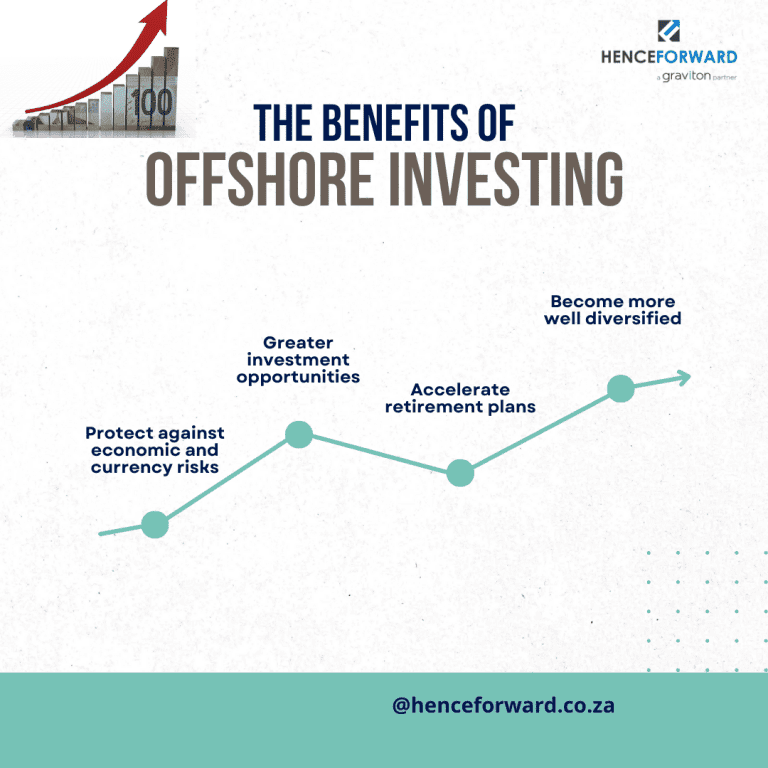Investing Off Shore: Myths, Facts, and Real-World Examples
Wiki Article
Discovering Exactly How Spending Off Shore Functions: A Comprehensive Overview
Spending offshore provides a complicated landscape of chances and challenges. Comprehending the different sorts of offshore accounts is essential for any individual considering this route. The benefits, consisting of improved privacy and possession defense, are considerable. Lawful and tax effects require careful interest. As capitalists look for to enhance their portfolios, the actions to develop a feasible offshore financial investment approach come to be necessary. What are the crucial components that a person must navigate to prosper in this endeavor?Comprehending Offshore Accounts and Their Types
What drives people and businesses to contemplate overseas accounts? The attraction of monetary privacy, asset defense, and potential tax obligation advantages usually draws in the attention of those seeking to handle their riches a lot more tactically. Offshore accounts, typically established in international territories, come in different types. Individual accounts deal with specific demands, supplying services like cost savings, financial investment, or retired life preparation. Business accounts, on the other hand, offer firms wanting to assist in worldwide deals, boost privacy, or optimize tax obligations. Depend on accounts provide an additional layer of protection, permitting people to guard their properties for future recipients. Each kind of offshore account provides distinct functions, usually affected by the regulatory setting of the host nation. Comprehending these distinctions is important for people and businesses, as the choice of account kind can especially influence their monetary techniques and compliance with global legislations.Advantages of Offshore Spending
While lots of capitalists seek opportunities to diversify their profiles, offshore investing presents distinct benefits that can improve financial development and safety. One remarkable benefit is the possibility for asset defense. Offshore accounts can protect financial investments from political instability or financial downturns in the investor's home country. Furthermore, overseas investments typically supply access to worldwide markets, permitting capitalists to use emerging economies and fields that might not be available domestically.Another considerable benefit is tax performance. Lots of offshore territories offer favorable tax obligation routines, which can minimize tax obligations and improve overall returns. Offshore investing can enhance privacy, as particular jurisdictions implement rigorous confidentiality laws.Lastly, overseas accounts can help with riches administration techniques by supplying a broader variety of investment alternatives, including alternate possessions such as real estate and commodities. Jointly, these benefits make offshore investing an enticing selection for those looking to strengthen their financial portfolios.
Lawful and Governing Factors to consider
Guiding with the legal and governing landscape of offshore investing requires mindful focus and understanding. Investing Off Shore. Financiers need to navigate an intricate web of legislations that vary considerably from one territory to another. Conformity with regional policies is vital; failure to do so can result in serious penalties, including penalties and imprisonment. In addition, understanding the legal frameworks controling international investments is essential for guaranteeing the defense of possessions and keeping operational legitimacy.Key considerations consist of recognizing the governing requirements for establishing overseas entities, such as corporations or trusts, and sticking to anti-money laundering (AML) and know-your-customer (KYC) regulations. Capitalists should also be mindful of reporting commitments in their home country, as numerous countries require disclosure of offshore holdings. Engaging with lawyers experienced in offshore financial investment can provide important advice, helping financiers to alleviate threats and safe and secure conformity with applicable legislations and guidelines while maximizing their financial investment potential

Tax Implications of Offshore Investments
Comprehending the legal and regulatory considerations of offshore investing normally causes an evaluation of the tax obligation implications associated with these financial investments. Offshore financial investments can supply considerable tax obligation benefits, including minimized tax rates and the possibility for tax deferral. Nonetheless, financiers should navigate complicated tax regulations in their home nations, as several jurisdictions need taxpayers to report international earnings and assets.For united state people, the Foreign Account Tax Obligation Conformity Act (FATCA) mandates the coverage of overseas accounts, while various other nations have comparable demands. Failure to comply can result in serious fines. Additionally, certain offshore funds may go through unique tax obligation treatments, such as Passive Foreign Investment Company (PFIC) regulations, complicating financial investment strategies.Investors must think about seeking advice from tax experts to comprehend ramifications certain to their circumstances and assurance compliance with both international and residential tax obligation laws, ultimately making the most of the advantages of their offshore investments while lessening dangers.Actions to Start With Offshore Spending
Lots of financiers seeking to diversify their profiles turn to offshore investing as a practical alternative. To start, one should conduct extensive research study on prospective offshore territories, thinking about variables such as regulatory atmosphere, taxes, and investment chances. Investing Off Shore. After picking a suitable area, investors should develop an offshore account, which normally requires documentation showing identity and resource of funds.Next, capitalists often involve with an overseas investment or an economic advisor company acquainted with regional laws and market characteristics. This partnership can help in crafting a tailored financial investment method that aligns with individual goals and risk tolerance.Once the strategy remains in place, financiers can continue to choose particular possessions or funds for financial investment, ensuring they examine efficiency and runs the risk of consistently. Keeping compliance with both neighborhood and home nation regulations is crucial for effective offshore investing, calling for continuous persistance and possibly routine assessments with legal experts.
Often Asked Inquiries
Just how Do I Pick the Right Offshore Territory?
Picking the best overseas jurisdiction entails examining variables such as regulatory setting, tax advantages, political stability, and convenience of working. this link Researching each choice extensively ensures enlightened decisions that straighten with individual financial investment objectives and take the chance of resistance.What Kinds Of Possessions Can I Hold Offshore?

Exist Dangers Connected With Offshore Investing?
The risks connected with offshore investing consist of lawful complexities, regulative changes, money changes, and possible political instability. Investors should thoroughly assess these factors to mitigate threats and guarantee conformity with international laws and guidelines.Exactly How Can I Gain Access To My Offshore Funds?
To access offshore funds, individuals commonly need to contact their economic organization, offer necessary identification and documentation, and adhere to recognized methods for fund transfers, guaranteeing conformity with both global and regional laws controling overseas financial investments.
What Prevail False Impressions Concerning Offshore Accounts?
Typical misconceptions regarding overseas accounts consist of ideas that they are exclusively for tax evasion, lack of regulation, or available to the well-off. In fact, they can be reputable economic tools for diverse people. In addition, offshore investments frequently provide access to global markets, allowing financiers to tap right into arising economic climates and sectors that may not be available domestically.Another substantial benefit is tax effectiveness. Offshore investing can boost privacy, as particular territories impose stringent discretion laws.Lastly, overseas accounts can facilitate wealth management techniques by offering a broader array of financial investment options, including alternative assets such as actual estate and commodities. Understanding the legal and regulatory considerations of overseas investing naturally leads to an exam of the tax obligation implications associated with these investments. Offshore financial investments can offer considerable tax benefits, including reduced tax obligation prices and the possibility for tax deferment. After selecting an appropriate place, financiers ought to develop an overseas account, which go generally needs documentation verifying identification and source of funds.Next, investors usually involve with a his explanation monetary consultant or an overseas investment company acquainted with regional regulations and market dynamics.Report this wiki page